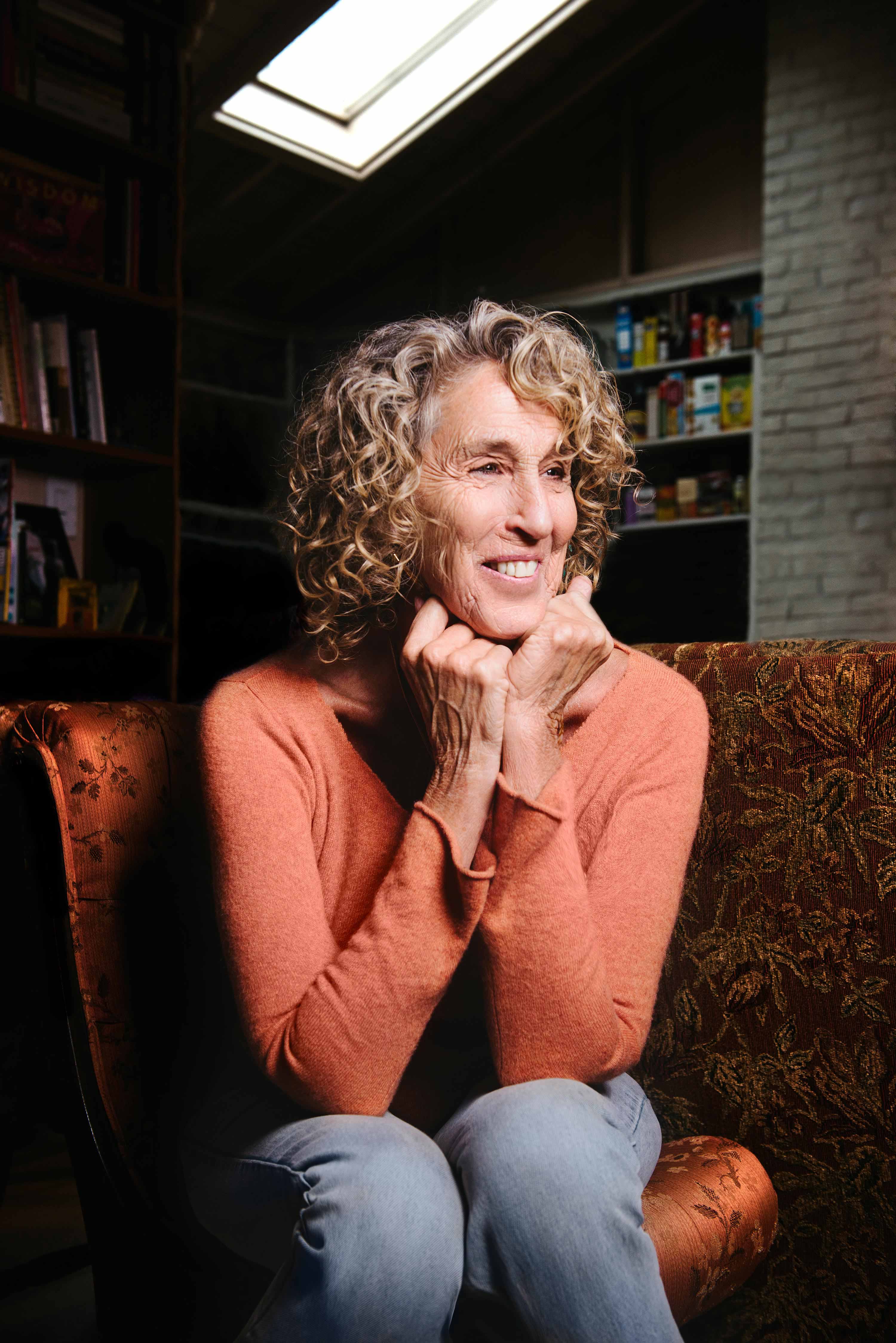
Eli Dagostino
Nancy Slonim Aronie
Nancy Slonim Aronie is mad as a hatter and, yet, completely down to earth.
She’s a writer, a columnist, a teacher, a comedian, a philosopher, a mentor, a listener, a provoker of thought and a provider of sanctuary. She’s well known for her work on National Public Radio’s “All Things Considered,” her popular radio commentaries that ran regularly for six years. She’s taught at Harvard, wrote a monthly column for McCall’s magazine, and was an Artist-in-Residence at the Isabella Stewart Gardner Museum.
All of these things manifest themselves in the creative life Aronie has crafted for herself as an inventive storyteller. She follows Mark Twain’s advice, “Write what you know.”
“I write about personal narratives,” Aronie says matter of factly, “really, whatever has happened to me or anything in my head.”
The piece that propelled Aronie as a professional raconteur went into print at the Hartford Courant on February 2, 1986, titled “The Obscene Phone Call,” — we couldn’t link to it here because it’s not on the web, so you’ll have to know somebody who knows somebody to read it — and, a few weeks later, as her first NPR commentary, “Obscene phone caller gets good talking-to.” She sent both unsolicited.
The story is eccentric, but is Aronie’s own. She and her husband Joel were raising two boys in Hartford and running their Plexiglas business. One day, she picked up the ringing telephone, and an obscene call ensued. She scolded and then educated the male caller on what it feels like for a woman to be on the receiving end of an obscene phone call. Aronie’s reflective inclination came to the fore, realizing he was probably lonely. She continued to take his calls for quite a while, often summoned by the words, “Mom, it’s your obscene phone call guy.” Eventually, she ended things, but she never met the caller, and doesn’t know what became of her erstwhile friend.
No surprise, the Courant article got a lot of attention. In its immediate aftermath, Aronie, who is nothing if not sincere and professionally astute, rented a sound studio, recorded a two-minute commentary, and sent it to NPR office in D.C. They ran it.
She believes it was NPR that helped cement her reputation from “zany” to “distinguished” and admits that it gave a big boost to her own self esteem.
Aronie’s work always has punch, often a soft one, and often delivered with humor. Like most good comedy, she doesn’t play for laughs and her tear-jerkers manage to be frank rather than sentimental. She brings a sense of truth to the things she writes about, whether it’s discovering she has wrinkles (she started college in 1959), singing tenor in a Congregational choir (she’s Jewish), detailing the heartbreaking passing of her adult son (after a long illness), or considering God during a date night with her seven-year-old grandson.
Given the sum of these parts, it’s no surprise Aronie is as driven to teach as she is to write.
“No one can really teach writing,” Aronie says, even though she’s been teaching writing for over 35 years. “What I know I can do is create a safe place for writers to write.”
Aronie and her husband have owned a second home on Martha’s Vineyard for many years.
“Thirty-five years ago, I’d been running writing workshops in Hartford, and I was getting better at it,” she says. “I loved doing it. Joel and I wanted to spend the summer at our cabin on Martha’s Vineyard, but wasn’t sure how we could manage. I’d been filling my workshops in Hartford, but wasn’t sure if I would be able to attract students on the Vineyard. I didn’t know many people there and my reputation hadn’t happened yet. My Vineyard friend Barbara Lee encouraged me, saying, ‘Do the workshops on the Vineyard.’ So, she and I drove around the island, putting up posters. I gave flyers to everyone I knew. The workshops really grew because of word of mouth. Now, people come from all over the world to attend.”
Thus was born The Chilmark Writing Workshop , and it has been going ever since, operating out of the small Island town where Aronie is now based. Courses include “Jump Start Your Memoir,” “Write It From the Heart,” “Food for Thought: Finding Your Voice & Your Palate,” “Writing From The Heart: Finding Your Inner Voice” and “The Revolution Within: Women’s Week.”
“Creativity requires safety,” she says. “The beginning is always scary. I have one rule and that is when someone finishes reading we tell them what we loved. I set the tone, encouraging people to listen, and how to thoughtfully respond. There’s no judgement, no competition. People take the chance of saying this is who I am, this is what happened to me. Their voices become authentic and ring true. Then, they write what they want to say, not what they think people want to hear. In this workshop we laugh, we cry and we write.”
Aronie’s writing workshop is about healing, although, she says, that makes it sound too ‘woo-woo.’
“If I called the workshop Writing to Heal no one would come. But, for a lot of people, that is exactly what happens. Because they are safe, they write their secrets; they write the truth. They write what they haven’t even processed themselves. But, on the page they get to see what they’ve been carrying, holding in their bodies, in their livers and in their hearts.”



 4 min read
4 min read

